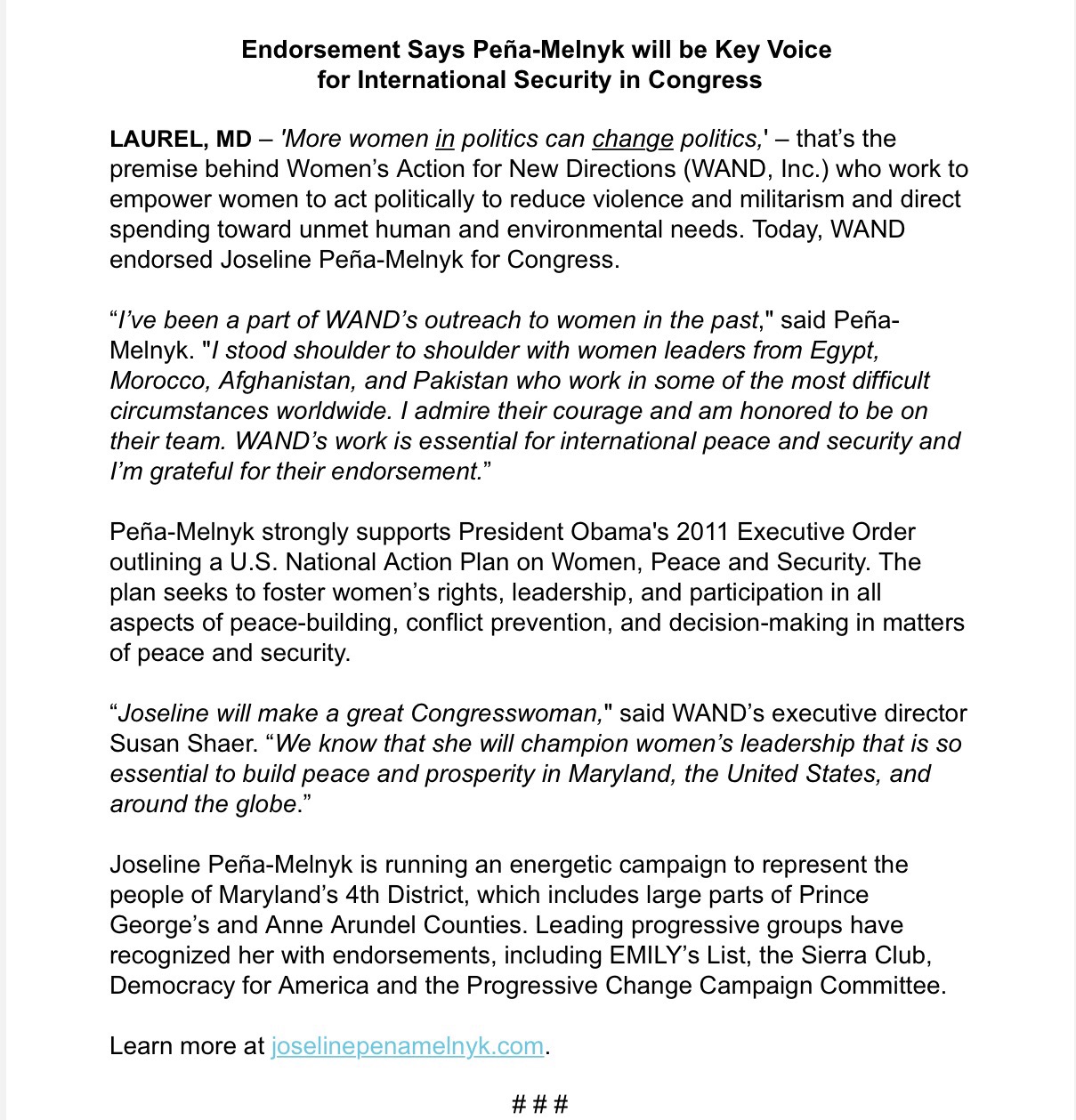One day into the New Year, and the branding has already begun. It’s the Year of the Woman in Maryland politics.
Women voters in Maryland are being targeted with television ads about the two candidates running in the state’s Democratic primary for U.S. Senate, underscoring the battle underway for a demographic that will play a key role in choosing a successor to Barbara A. Mikulski, the pathbreaking dean of the Senate women.
Rep. Chris Van Hollen of Montgomery County began airing a new commercial this week promoting his record on women’s issues. The spot comes as a powerful national women’s group with a history in Maryland politics is running $1 million in advertising for his primary opponent, Rep. Donna F. Edwards of Prince George’s County.
In races across the state, candidates are working aggressively to reach women, who typically account for about 60 percent of the turnout in Maryland Democratic primaries — and who observers believe will be energized by Hillary Clinton’s presidential campaign to vote in larger numbers this year.
“There are many women who are looking at her candidacy as historic,” said Steve Raabe, president of the Annapolis-based polling firm OpinionWorks. “That certainly isn’t going to hurt the turnout among women.”
And it’s not just the Senate race, either. It’s happening in both open House races as well.
In the 8th Congressional District, which includes parts of Montgomery, Frederick and Carroll counties, former television news anchor Kathleen Matthews focused her first position paper on what she described as women’s issues, including paid family leave and equal pay.
State Sen. Jamie Raskin, also running for the Democratic nomination in the 8th District, announced a group of female supporters early in his campaign that will help organize other women to back the campaign.
Several women’s political organizations, meanwhile, have endorsed state Del. Joseline Peña-Melnyk in her bid in the 4th Congressional District, which includes Anne Arundel and Prince George’s counties. Another candidate in the 4th, former Prince George’s County State’s Attorney Glenn Ivey, launched a group of women supporters in December.
Given the statistics on turnout, appealing to women is critical. Moreover, there is a natural fit between certain issues that matter to women - pay equity, family leave, child care - and economic justice issues generally that are of critical importance to the increasing progressive left wing of the party’s electorate. If you’re a candidate with a real and meaningful track record on these issues, then you’re in the game.
But let’s be brutally honest in a way that John Fritze perhaps can’t be: being a female candidate in 2016 is an advantage. It’s Donna Edwards’ calling card - if she wins, it will be because she argues that she brings a unique perspective as a black woman (race isn’t exactly relevant, either, prtixularly in the Senate contest). Kathleen Matthews and Joseline Pena-Melnyk are surging because they’re working hard and running good campaigns, but part of their appeal is that they’re women.
It’s a fine line. Nobody should be elected solely because of their identity: race, gender, ethnicity, generational, etc. But it is a factor.
“Vote for me because I understand what it’s like to be a woman.”
“We need more voices that will speak to women’s issues and concerns.”
If being a woman is all you’ve got, then you’re not going to succeed. But the women in all three races have extensive and impressive track records, and being women only enhances that appeal. How it all plays out in the end will be one of the key story lines between now and April 26.
